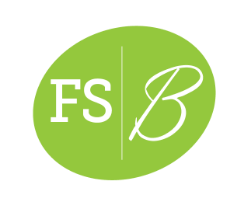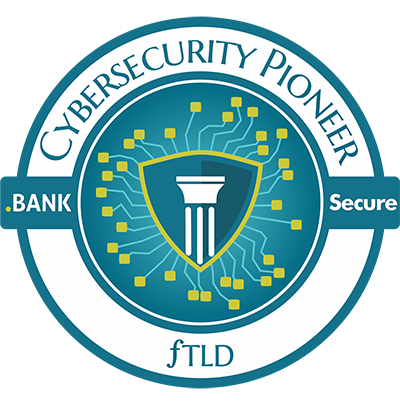Protecting Against Scams
is a Community Effort
At First State Bank, protecting you from scams is our top priority. We’re here to equip you with tips and the latest information on the ever-evolving tactics used by scammers.
Think. Verify. Protect.
Think – Don’t let anyone rush you into making quick decisions, especially when money or sensitive information is involved. Take your time to evaluate any unusual requests, especially if the payment method seems unfamiliar.
Verify – Make sure the person reaching out is who they claim to be. Does their story add up? If in doubt, reach out directly to the person, organization, or bank using a trusted number—like one from your statement or the back of your card. Remember, you can’t always trust phone numbers found online.
Protect – Stay informed about the latest scams, and talk to friends and family to help them protect themselves too. The more aware you all are, the harder it is for scammers to succeed.
Spotting an Impostor
Scammers often pose as trusted figures and create a sense of urgency to get you to act quickly. Here’s what to watch for:
Initial Contact
Scammers use various channels to reach you—phone, email, text, social media, even pop-up messages on your computer. They might claim:
- There’s fraud on your account, and you need to withdraw or move your money immediately.
- They are an online romantic partner in crisis needing money to resolve it.
- The IRS is demanding overdue taxes or informing you of a refund.
- They missed a package delivery and need you to reschedule.
- Your computer has issues that only they can fix.
- A job application is requesting sensitive details like your Social Security number or PIN.
- There’s an unexpected monthly fee for financial aid or tuition.
- A company you do business with is offering a refund for an overpayment.
Deceptive Instructions
Be cautious if you’re told to do the following:
- Withdraw cash and deposit it into a “new” account they give you details for, whether through an ATM or a digital currency machine like Bitcoin.
- Move money to a digital wallet and transfer it to a “new” account.
- Click on links or download attachments asking for payment details.
- Share your PIN or security codes.
- Ignore any warnings while following their instructions.
- Believe the bank is “in on” the fraud.
- Give remote access to your device or download an app to fix an issue.
- Enter special characters into your phone, such as *72 or **21, potentially forwarding your calls and texts to the scammer.
How the Scam Works:
If you follow their instructions:
- You’ll move your money into a scammer’s account instead of your “new” account, and it’s unlikely to be recovered.
- The scammer can steal your personal and financial information.
- Malware might be installed on your device to capture your data.
- Your calls and messages may be redirected to the scammer.
- They could demand money to restore access to your accounts or devices or prevent them from releasing your personal info.
Tips to Protect Your Money
- We will never ask you to move money or make payments to anyone—especially not to yourself.
- Always take scam warnings seriously—don’t ignore them, even if asked to.
- Verify any requests for money through legitimate sources.
- Avoid unfamiliar links asking for payment or personal details.
- Be cautious about granting access to your device or downloading apps. If you suspect something, run a virus scan and shut down your device.
Together, we can stay one step ahead of scammers and keep your finances safe!
THIS IS YOUR MONEY
You have entrusted us to keep it safe. We take our obligation to protect your funds seriously, even after you take your funds, we want you to have a full understanding of specific scams targeting customers who make cash withdrawals.
Please review these Red Flag Warning Signs as you leave our banking center with your cash. If any of these situations are true, come back to our office IMMEDIATELY!
- Have you been told to go to a gas station, or a location with a Bitcoin ATM to deposit the cash?
- Have you been asked to purchase gift cards at retail stores such as Walgreens, CVS, Target, Walmart, etc. DO NOT SCRATCH OFF GIFT CARD CODES AND GIVE THEM TO STRANGERS.
- Have you been instructed to send cash through U.S Mail, Western Union or through a UPS Store?
- Were you instructed to make up a lie if your financial institution inquired about the cash withdrawal?
- Have you been on the phone with a caller for a long period of time, maybe even while you were processing your transaction at the teller window?
- Did you receive a phone call, text, or email that your funds have been compromised, stating that you must move them to a “safe place?”
- Did you receive a call where the caller ID read FSB Fraud Department? Caller ID can be “spoofed” to look as if the call is from the bank.
- Were you told your account has been charged for something that you did not want and when processing the refund online you were told “you put in the wrong dollar amount, and you must return this excess money immediately?”
- Are you trying to “Return money, that does not belong to you?” Did you review the recent transactions on your FSB account for any internal transfers that you did not process making it look like you have excess funds to return to someone?
- Were you notified that you’ve won a lottery, or a prize, and you must pay the “taxes or delivery fees up front” by paying an unknown delivery person in cash?
- Is your grandchild in trouble and you are being asked to pay “someone” who will help them avoid jail time and/or legal charges being filed? CALL THE GRANDCHILD IMMEDIATELY.



